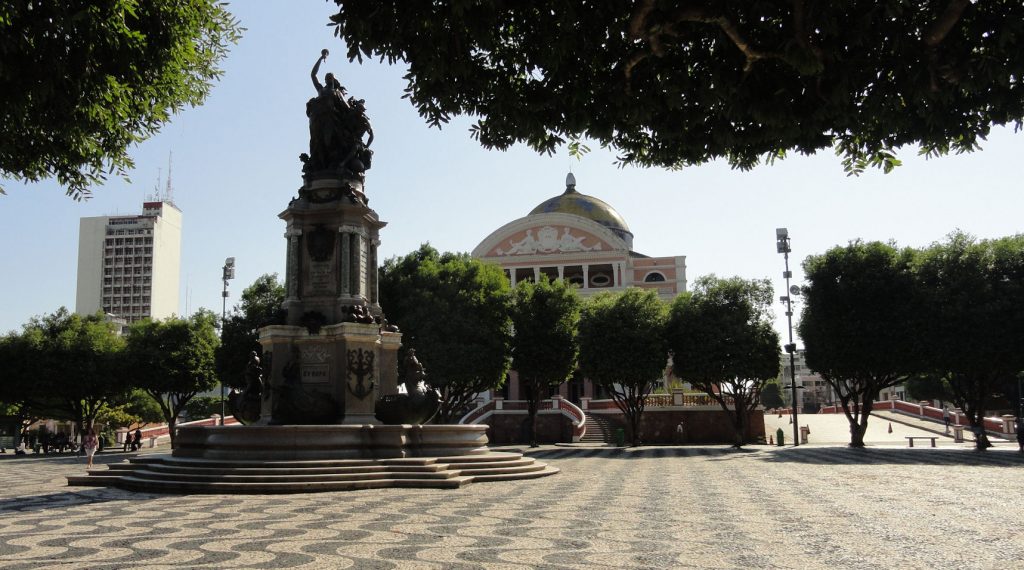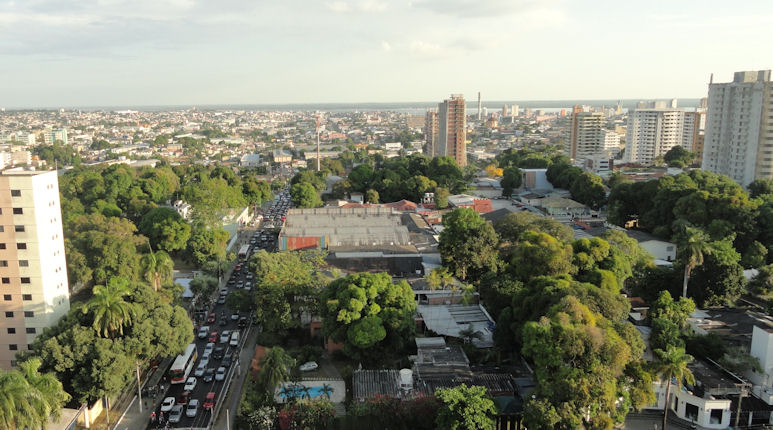
My posts will be late an out of order. I am really enjoying my work in Brazil and I asked my colleagues to create very tight schedules for me on my travels. They did. I am usually scheduled with an early morning or breakfast meeting, meetings during the day and then some sort of representational event at night. I don’t write this so much to brag (maybe a little) but to emphasize the scheduling. Back home, some people think the life of a diplomat is just doing fun things … and it often is. It is great fun and personally rewarding to have the chance to meet so many Brazilians and talk to them about such a wide variety of concerns.
But it is also very tiring. I always tell people that everything about doing public diplomacy is simple. You just have to keep doing it and keep doing it. It is also hard to speak Portuguese all day AND at the same time keep track of the important things that are being said. You will read in subsequent posts about our visits to a high-tech complex in Recife. It is hard to talk nanotech in Portuguese. Actually, many of the high-tech words are almost the same, but the concepts are not easy in a foreign language.

The biggest challenge is writing notes. What I post on the blog are derivatives of the notes, so you know what I am talking about. I take out most of the names and some of the details and add a few more touristic details. I generally cannot take written notes during meetings. It would be strange or bad manners to pull out the old note book at every lunch meeting. So I have to write notes within a day or two, otherwise I forget details. If I don’t make a note and share it with others it is not really much of a meeting from the practical point of view.
I think I should add a note about the “tourist” aspects of diplomacy, because this is something I didn’t understand as a junior officer. My first time in Brazil, I mostly worked on the things people call work. I wrote all my reports, made the official points etc. I think I did a good job, but not a great one because I didn’t understand that the fundamental task of a diplomat (IMO) is to understand and appreciate the local reality. I am not talking about the usual tourism, of course, but of a better understanding. The people I contact in Manaus want to know that I have seen and appreciate their Opera House, for example, even if some of them have not actually visited themselves, BTW. So one of the most important tasks is to learn about the points of pride or concern and just be there. Imagine a diplomat in Washington who never had time to visit the Washington Monument or the Smithsonian. His credibility is compromised. So now I make it my business to study the places I go. It makes my job a lot more interesting and makes me much more effective. That is the part the blog posts reflect.
The Brazilians that I meet have often known other American diplomats. The ones that they remember, the ones that were effective, are those that knew and appreciated Brazil, not the ones that effectively delivered talking points about the most recent hot issue. They did that too, but they knew that the message has to be delivered in the proper cultural context.
My rant is done. Have to get to work now.
The picture up top is indeed the Manaus Opera House, which I made sure to see. Below is a picture of modern Manaus. It is a big and dynamic city. You would not know you were in the Amazon, except for the remarkable heat and humidity.
